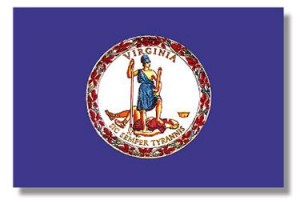
Trade Secrets and Qui Tam — Part One
In a move that should be welcomed by all qui tam lawyers and whistle blowers, President Obama signed the Defend Trade Secrets Act of 2016 into law yesterday.
As regular readers know, in addition to my qui tam practice, my firm also handles commercial tort cases (the larger category of legal cases to which trade secrets cases belong) but that is not why the DTSA is being covered in this blog.
No, I am covering the DTSA because it has special protections for qui tam whistleblowers who copy documents or other information to support their qui tam case. Such protections are important and are necessary to protect whistleblowers who copy documents or other information for purposes of bringing a qui tam suit or at least investigating the possibility. I have previously covered this topic before as it is one that routinely comes up on FCA work (although thankfully not in my cases.)
More to come on this important law, but the law nicely strikes a balance between the rights of trade secret owners and the rights of qui tam relators…more to come.
In the meantime, you can read the relevant sections of the bill below:
1) IMMUNITY.—An individual shall not be held criminally or civilly liable under any Federal or State trade secret law for the disclosure of a trade secret that—
“(A) is made—
“(i) in confidence to a Federal, State, or local government official, either directly or indirectly, or to an attorney; and
“(ii) solely for the purpose of reporting or investigating a suspected violation of law; or
“(B) is made in a complaint or other document filed in a lawsuit or other proceeding, if such filing is made under seal.
“(2) USE OF TRADE SECRET INFORMATION IN ANTI-RETALIATION LAWSUIT.—An individual who files a lawsuit for retaliation by an employer for reporting a suspected violation of law may disclose the trade secret to the attorney of the individual and use the trade secret information in the court proceeding, if the individual—
“(A) files any document containing the trade secret under seal; and
“(B) does not disclose the trade secret, except pursuant to court order.
“(3) NOTICE.—
“(A) IN GENERAL.—An employer shall provide notice of the immunity set forth in this subsection in any contract or agreement with an employee that governs the use of a trade secret or other confidential information.
“(B) POLICY DOCUMENT.—An employer shall be considered to be in compliance with the notice requirement in subparagraph (A) if the employer provides a cross-reference to a policy document provided to the employee that sets forth the employer’s reporting policy for a suspected violation of law.
“(C) NON-COMPLIANCE.—If an employer does not comply with the notice requirement in subparagraph (A), the employer may not be awarded exemplary damages or attorney fees under subparagraph (C) or (D) of section 1836(b)(3) in an action against an employee to whom notice was not provided.
“(D) APPLICABILITY.—This paragraph shall apply to contracts and agreements that are entered into or updated after the date of enactment of this subsection.
“(4) EMPLOYEE DEFINED.—For purposes of this subsection, the term ‘employee’ includes any individual performing work as a contractor or consultant for an employer.
“(5) RULE OF CONSTRUCTION.—Except as expressly provided for under this subsection, nothing in this subsection shall be construed to authorize, or limit liability for, an act that is otherwise prohibited by law, such as the unlawful access of material by unauthorized means.”.